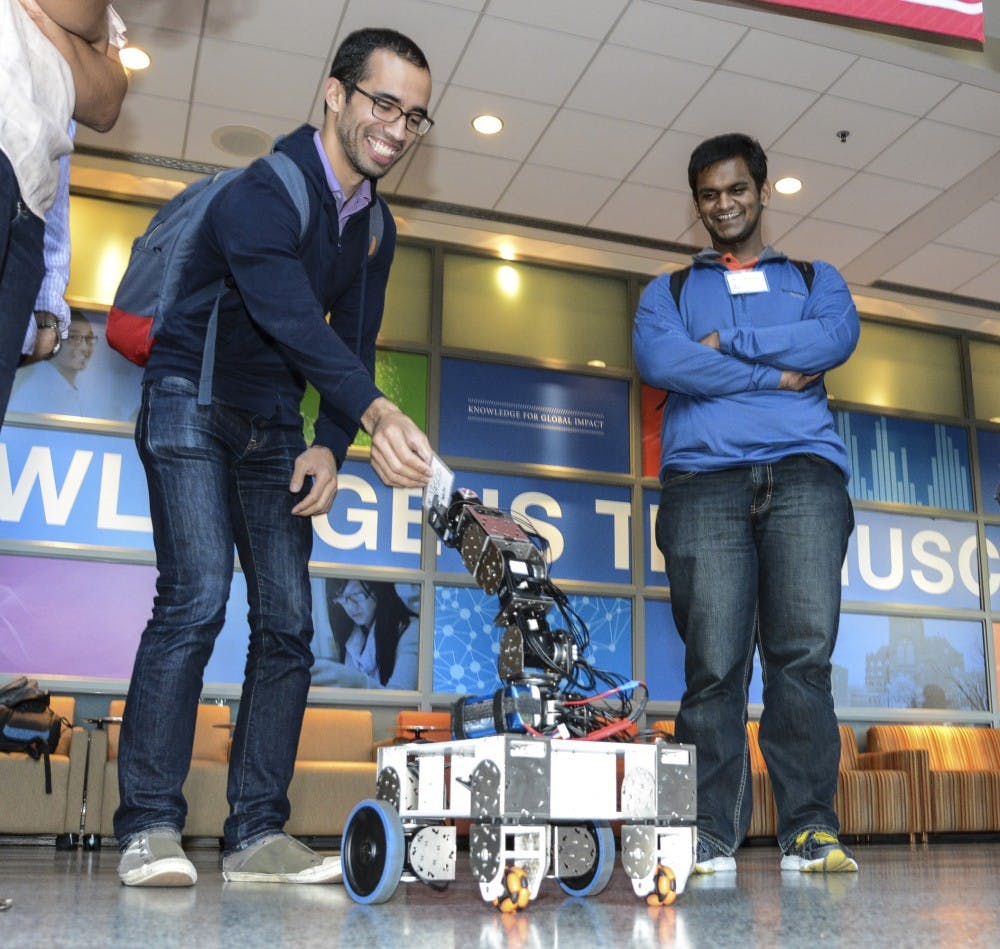
Wharton and Engineering students are coming together to help commercialize Penn technologies.
The first ever Y-Prize competition, a collaboration between the Wharton School, Penn Engineering and the GRASP Laboratory, allows students to submit proposals on how robotic technologies developed at Penn can be put to use.
The competition is a contrast to X Prize competitions, which ask students to develop technologies that can be used to solve societal problems, explained Engineering professor Vijay Kumar, who originated the idea with management professor David Hsu.
“[In X Prize competitions] people are told, ‘We want you to solve X.’ Here, we don’t know what X is, but we know what technologies we have at our disposal,” he said. “What kind of challenges can you imagine would leverage the technology? That was really the motivation for doing this.”
The competition is divided into two phases. In Phase I, students submit a two to five page proposal, due on Oct. 19, stating the market potential and technical feasibility of their proposition. Winners of Phase I will receive $500 and technical consulting.
A select group of students from Phase I will submit a revised proposal for Phase II. Winners of this phase will be awarded $5,000 cash and a non-exclusive license to any of the University’s intellectual property, which they could use in their solutions.
Last night, the competition hosts showcased the three technologies students would be working with at the competition’s Ideation event.
Students will make suggestions for aerial robots with high maneuverability, ground robots that simulate how cockroaches walk, and modular robots that can be reconfigured — all technology created in the Engineering School’s General Robotics, Automation, Sensing and Perception Lab.
Engineering sophomore Dick Zhang said the fact that the technology has already been created gives students without much experience with entrepreneurship or technology an opportunity to participate in those fields. “The difference between this competition and real life is in this competition the innovation has already been done for you,” Zhang said. “You’re just trying to find a fit for it. You’re just trying to sell the idea.”
Kumar said that although Penn boasts high-ranking business and engineering schools, marketing the technologies that come from the University isn’t easy. “It’s really about combining the culture of engineering and the culture of business,” Kumar said. “It’s all about how you take technologies and bring them into the market,” he added.
Yash Mulgaonkar, a research scientist at the GRASP lab, said the technologies have been in development for a while and are ready for the market.
He hopes the business and engineering students can improve upon the original ideas for the technologies and commercialize them. “The ideal outcome of this competition would be a group of Wharton students, a group of Penn Engineering students uniting to use these technologies, come up with a good application and come up with a spin-off that does really well in the market,” he said.
Kumar anticipates Y-Prize becoming an annual competition. Teams shortlisted for Phase II will be notified Oct. 30 and finalist presentations will be on Jan. 28, 2013. Next year’s focus will be nanotechnology.
The Daily Pennsylvanian is an independent, student-run newspaper. Please consider making a donation to support the coverage that shapes the University. Your generosity ensures a future of strong journalism at Penn.
DonatePlease note All comments are eligible for publication in The Daily Pennsylvanian.








